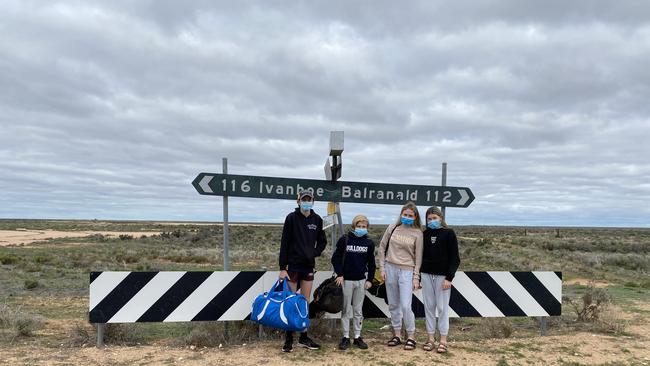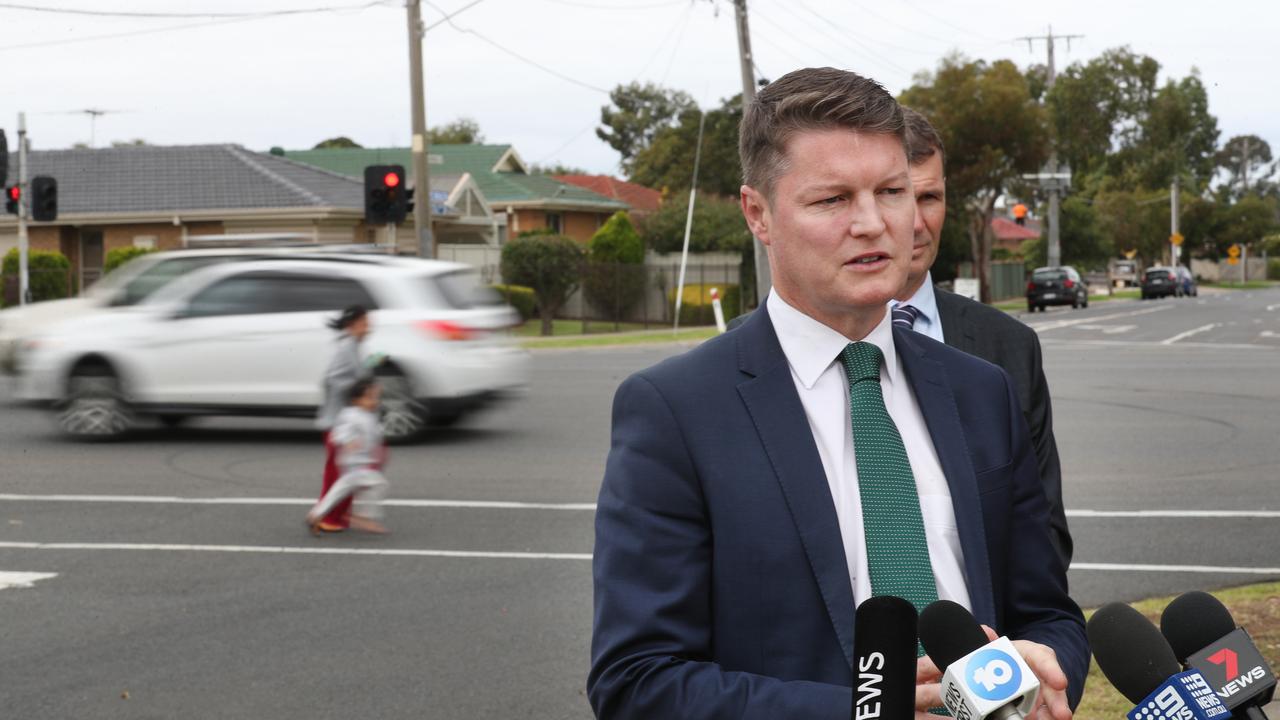National Code for boarding students: States split on action plans
Some states vocally back new National Code for boarding students, while others say they won’t change border settings.

Rural boarding students and parents are counting the days until the October 4 start of term, with tension mounting about travel arrangements.
All states and territories have three days to reveal how they will implement the National Code for cross-border travel for interstate boarding families, which was endorsed by national cabinet on September 17.
The prospect of more enforced separation from their families looms large for many rural children, who still do not know when – and how – state governments will guarantee they can travel across state lines between home and school campuses safely.
Federal Regional Education Minister Bridget McKenzie urged all states to put the code into practice by October 1.
The following states have replied to The Weekly Times’s questions about when, and how they would implement the recommendations.
VICTORIA
A spokesman for Victoria’s Department of Health said the state was committed to implementing the code by October 1.
“Through our endorsement of the National Code, we are committed to supporting the transit of boarding school students through our state and across our border, so students can return to their homes and schools during Covid-19 lockdowns,” he said.
“With Victoria’s border policy now under review, we are making every effort to implement the Code by the start of October, so boarding school students, their parents and guardians can prepare for Term 4.”
Victoria would support all intrastate and cross-border travel for boarding school students, their families and staff, except where the public health risk was deemed too great, he added.
NSW
NSW Health referred The Weekly Times’s questions to NSW Education.
Minister for Education Sarah Mitchell said she “wholeheartedly” supported the National Code.
“It’s been a really challenging time for families with children who board at schools interstate, and we must ensure they are given the help and advice they need so they are unfairly impacted during the pandemic,” she said.
A spokesman for NSW Education confirmed that the responsibility for implementing the National Code’s recommendations sat with the health authorities.
“We continue to work with the NSW Cross Border Commissioner, Association of Independent Schools of NSW and Catholic Schools NSW to support students from all states and territories in relation to travel matters,” the spokesman said.
NORTHERN TERRITORY
An NT Health spokeswoman said the National Code for Boarding Students would not impact the NT’s hotspot declarations or decisions at this time, and mandatory quarantine arrangements would not change.
Currently, NT border controls prohibit entry into the territory except for returning residents, or those who have obtained prior approval to enter.
“People approved to travel to the NT who have been in a declared hotspot or exposure site in the past 14 days are required to undertake mandatory supervised quarantine at the Alice Springs or Howard Springs quarantine facilities,” the spokeswoman said.
“NT Health understands quarantine arrangements can be difficult for families, however they are essential in order to keep Territorians safe.”
ACT
ACT Health said it was supportive of the National Code and would continue to facilitate the safe return of boarding school students to the ACT.
“The code will only be relevant for students who are travelling to the ACT from a Covid-19 affected area,” a spokesman said.
“Boarding school students wishing to re-enter the ACT from a Covid-19 affected area must apply for an exemption from ACT Health. The Exemptions team will work with each student to ensure they are able to quarantine safely in the ACT.
“ACT Health is in regular contact with the Education Directorate to ensure the exemption process is as smooth as possible for returning students while limiting the spread of Covid-19.”
QUEENSLAND
A Queensland Health spokeswoman said Queensland Health had been issuing class exemptions for boarding school students returning home to Queensland during every school holiday, even before the National Code was implemented,
“The most recent class exemption permits any boarding school student and their accompanying parent or carer entering Queensland for the holidays to quarantine for 14 days either at home or at a private, freestanding residence as long as that accommodation is suitable for quarantine. All people in the home or other residence will also need to quarantine for the 14 days,” she said.
“Throughout the pandemic, we have always upheld the health and safety of Queenslanders through strict measures to prevent the spread of the Covid-19 in our communities.”
Western Australia and South Australia have not responded to questions from The Weekly Times.
URGENT NEED
Ballarat Grammar School head of boarding Chris Van Styn said most of the interstate students at the coeducational school who left Victoria to go home for the school holidays did so without knowing if they would be allowed to return.
“We had some Year 12s that stayed in Victoria, but we also had some that were just cooked, and needed to be with family,” he said.
He hoped a permit system, similar to an arrangement made by NSW last year when Victoria was in lockdown, would be introduced to reduce stress and uncertainty for families.
“That would be the best-case scenario for us,” he said. “Allowing that certainty that families can connect with their children and travel in a safe way.”
He said the school hoped for detailed guidelines about travel and testing requirements, and had offered to set up quarantine facilities on campus.
“It is not just the government that wants kids travelling by the most direct route,” he said.
“We’re not just talking about the start and end of term. What we are finding now is that increasingly kids are having to return home for wellbeing breaks.”
Northern Territory lawyer Tanya Heaslip said boarding-school families in Alice Springs were severely affected by the uncertainty about border crossings, and state announcements about compliance with the National Code could not come soon enough.
“The needs of bush children stuck at boarding school just seemed to slip through the cracks completely when it came to strategic management of moving children around, between states, in Australia,” said Ms Heaslip, whose mother was a founding member of the Northern Territory’s Isolated Children’s Parents’ Association.
“It is so easy for the authorities to make one-size-fits-all decisions and they don’t think about the outcome for the bush families.
“Thank goodness for ICPA, which has fought so hard to have this issue be raised and taken seriously enough that (national) cabinet took the decision.
“We just have to hope that at a state level, the state governments realise their responsibility to ensuring people in the bush receive the same rights for their children as the people in the city.”




